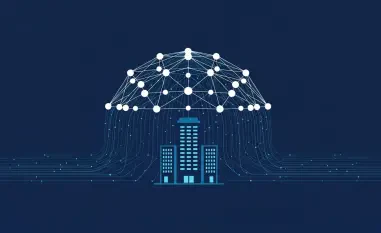As the 2024 United States presidential election approaches, the landscape of cybersecurity threats is becoming increasingly perilous. Cyber adversaries, including state-sponsored actors and hacktivist groups, are leveraging the heightened interest in the election to execute various cyber scams. Understanding and mitigating these threats is crucial for business leaders, citizens, and election officials to ensure the integrity of the electoral process.
The Rise of Phishing Scams
Phishing remains one of the most prevalent and dangerous cyberattack methods. Cybercriminals have refined their techniques, using advancements in artificial intelligence (AI) to create more believable and sophisticated phishing scams. FortiGuard Labs, a cybersecurity research division of Fortinet, has observed a disturbing trend in the development and sale of phishing kits designed to impersonate U.S. presidential candidates and their campaigns. These kits, priced at $1,260 each on the darknet, are tailored to deceive voters and donors, harvesting sensitive personal information such as names, addresses, and credit card details under the guise of donation requests.
The Fortinet 2024 Security Awareness and Training Global Research Report highlights that nearly 70 percent of respondents believe their employees lack critical cybersecurity knowledge, a significant increase from 56 percent in 2023. To improve defenses, regular training sessions for employees and individuals on recognizing phishing tactics are paramount. These initiatives should include guidance on identifying phishing emails, avoiding suspicious links and attachments, and the importance of reporting potential phishing attempts. Even with well-trained staff, human error continues to pose a significant challenge. Reinforcing systems with antivirus and anti-malware software on computers is crucial. This added layer of protection is particularly effective against phishing attacks and credential theft, buttressing the organization’s defenses against inadvertent lapses in judgment by employees.
Darknet Threats and Sensitive Data
The darknet has emerged as a significant hub for U.S.-specific threats, where malicious actors trade sensitive information and devise strategies to exploit vulnerabilities. Approximately 3 percent of posts on darknet forums are related to databases connected to business and government entities, making these critical organizational data repositories especially vulnerable during the election season. This sensitive information includes Social Security numbers, usernames, email addresses, passwords, credit card details, dates of birth, and other personally identifiable information (PII), all of which can undermine the integrity of the 2024 U.S. election.
Billions of records available on these forums hold the potential to fuel misinformation campaigns, leading to fraudulent activities, phishing scams, and account takeovers. Notably, the presence of over 1.3 billion rows of combo lists, comprising usernames, email addresses, and passwords, indicates a substantial risk of credential-stuffing attacks. These attacks involve cybercriminals leveraging stolen credentials to gain unauthorized access to accounts. The critical need for enforcing multi-factor authentication (MFA) and adopting strong password policies to protect data and credentials is undeniable.
Implementing Advanced Cybersecurity Measures
To counteract these threats, organizations must adopt holistic and proactive cybersecurity measures. Leveraging security orchestration, automation, and response (SOAR) platforms can be instrumental in detecting unusual activities by privileged users and blocking such actions when necessary. Moreover, considering the rising tide of ransomware attacks, maintaining comprehensive and current data backups as part of a broader defense strategy is essential. However, reliance solely on online backups is inadvisable; having a backup of cloud data at an off-site location, ensuring encryption for all backups, and employing stringent access control measures are prudent steps towards securing critical data.
Business leaders and citizens alike should prioritize a robust and proactive approach to cybersecurity, especially during high-stakes periods such as presidential elections. This involves staying vigilant against potential cyberattacks and adopting measures that extend beyond technical defenses to encompass organizational policies and user training. Only through a comprehensive approach can they bolster the integrity of the election and secure the processes against an array of cyber threats.
Key Findings and Recommendations
The FortiGuard Labs Threat Intelligence Report underscores several critical findings. The lead-up to the 2024 U.S. presidential election has seen an influx of cyber threats, especially through phishing scams and malicious domain registrations. With the utilization of AI, cybercriminals have amplified the scale and believability of their phishing scams, targeting voters and donors through sophisticated impersonation tactics. Human error remains a significant vulnerability, necessitating regular and comprehensive cybersecurity training to enhance awareness and preparedness.
Darknet forums are teeming with sensitive data related to U.S. businesses and government entities, posing substantial risks during the election season. Adoption of advanced cybersecurity measures such as MFA, strong password policies, SOAR platforms, and comprehensive data backup strategies are critical to mitigating the threat landscape. Organizations and individuals must adopt a multi-faceted approach to cybersecurity, blending regular training, advanced technological defenses, and robust policies to safeguard the integrity of the election process and protect against erosive cyber incidents.
Conclusion
As the 2024 United States presidential election draws near, the cybersecurity threat landscape is becoming increasingly hazardous. Cyber adversaries, including state-sponsored attackers and hacktivist groups, are taking advantage of the heightened focus on the election to carry out various cyber scams and attacks. This growing threat underscores the importance of understanding and mitigating cybersecurity risks to protect the integrity of the electoral process. Both business leaders and citizens, as well as election officials, must stay vigilant to ensure that the democratic process remains fair and uncorrupted. With cyberattacks becoming more sophisticated, it is imperative to adopt robust security measures and foster cybersecurity awareness across all levels of society. By doing so, we can defend against potential disruptions and maintain trust in our electoral systems. As the stakes are high, collaborative efforts between public and private sectors will be essential in countering these malicious activities and safeguarding our democratic institutions from digital threats.













